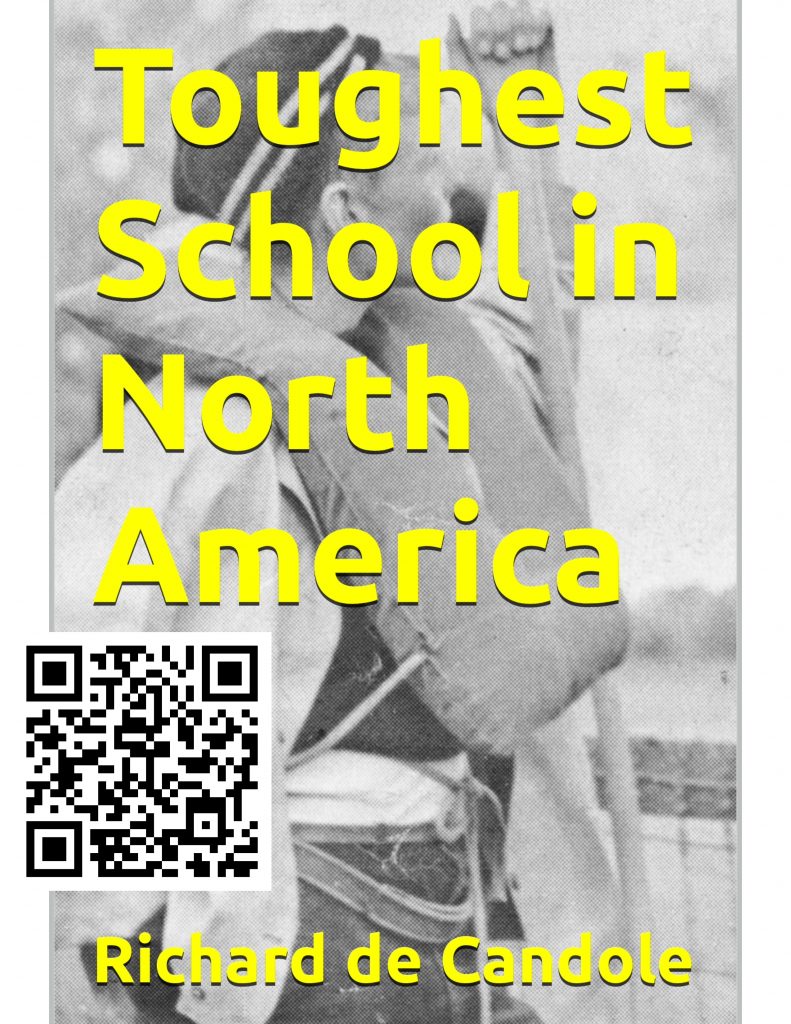Luck
Luck ‘s importance in sales is always overlooked until you hit a bus. When you see a bus on the road, you get out of the way. You know intuitively that buses usually win, and in a big way. So, rather than depending on luck protecting you, you use your feet to get out of the way, knowing that a collision will not end well.
Many salespeople, quite successful, believe that they are exempt from the laws of karmic physics. They are not.
Their sales theories are ethereal, ephemeral, and sadly, mostly bullshit, seasoned with Norman Vincent Peale goodness. Authors try to be theorists, pin down what qualifies as success, and sell the story.
Sales books and executive tell-alls about magic KPIs populate the fairyland of sales theories. Books and blogs that tell you how to sell, market, and/or create like Steve Jobs clutter bookshelves.
“Make omelets the Steve Jobs way! As I said in my Stanford convocation, I am the Egg Man!”
said Steve Jobs never
Steve didn’t really ever claim he was the Egg Man that I know about. Not at Apple, NeXT, Pixar, or Stanford.
Sales literature claims to be all about sales, for sales, and for more sales. Cadence, attainment, selling to the C level… it’s all the bullshit jargon of a sales overclass that’s lost its edge.
The Wedge at Newport Beach
Sometimes you need to come back from whence you came. For me, though I’m from Quebec originally, my youth was spent in the ocean in Orange County, California. Endless hours were spent in the swells, learning their rhythm and behavior, what they do, who they really are, before turning into full-on, shore, or reef break, waves.
It’s the ocean, a place where up can be down and down, up. An otherwise inconsequential mistake can lead to the immediate termination of life function, by drowning, or maybe being mistaken for a seal — someone’s prey.
Newport Beach, California, sports a shore break renowned for being nasty and unforgiving – The Wedge. Created when a jetty was built to make the entrance to the harbor safer, when conditions are right, waves can be around thirty feet high.
You can fight the break at the Wedge. If you don’t quickly learn you cannot fight the wave, you will drown. You go where the water wants to take you. The Wedge’s washing machine will break your neck.
John Wayne, the Duke, learned this the hard way.
Attending USC on a full scholarship, the Duke decided to bodysurf the Wedge, and the Wedge won. Injured, he lost his full ride to USC. Kicked out of school, Marion (as he was known then), had to find work in a prop department at one of the studios.
On our journey, we will take a beating in the whitewater and come out ready to surf another wave. At the very least, your bathing suit will be clean. In life, living to surf another day is what it’s about.
To survive a riptide, however counterintuitive it might seem, but you can’t fight the rip current. You have to let it sweep you out to sea and then hope to be able to swim back to shore along its outer edges. If you struggle, you die. Quite simple.
Look around you. You are in a turbulent ocean of riptides and large expanses of waters unknown to you. Go with you your instinct (or against it as the case may be) and survive. Surf your life, don’t fight it.
Selling Meat for Fun and Profit
Everything I learned about selling I learned in Canada selling back bacon, pork sausage, and chicken door-to-door in the frozen streets of Winnipeg, Manitoba.
These Lessons were not trivial and could save your life.

Cut loose in various and rotating neighborhoods of Winnipeg, Manitoba, I was part of a nightly plague of van-borne teams of Saint John’s Cathedral Boys’ School boys, meat sellers from hell. We ran amok selling meat door-to-frozen-door, raising money for our proto-Canadian boarding school located twenty miles north outside of Selkirk, Manitoba, on the Red River. It was here that my evil sales genius was birthed.
We would each sell one night a week, but if you were on meat crew or barn crew, you worked at least an additional fifteen hours per week in the meat business, while going to school full time, of course.
At the school, across Rural Route #2 on the banks of the Red River, we would sit and watch the barges piled high with pure white, sugar-like silica pass by. They were little tech heralds, previewing a career in high tech.
You learn a lot about yourself and your product when you are dumped out of a green van on to a windswept, cold corner with a basket of frozen meat to sell.
Selling a basket of frozen sausages, back bacon, and chicken door-to-door in the dead of winter, where the temperature never gets mentioned without an adjustment for windchill, while trying to figure out where you are next going to the bathroom is harder than selling to Steve Jobs.
Usually, after a night of selling meat, we would stop at MacDonald’s for dinner on our way back north to the school. If it was a good night, we had tips to burn and invest in the school’s prison economy, smuggling Hot Apple Pies and Cheeseburgers back into our dorms to our calorie-deprived classmates. Sometimes, food sold for twice retail value, especially the Apple Pies on Wednesday nights.
If lucky, my first call is to a household that buys out the entirety of my basket, feeds us, lets us use the bathrooms (once, maybe twice), and introduces us to their twin daughters (who happen to be my age).
This never happened, though life goals early in life are very important. I never had a life goal to sell meat to Steve, but if I had, and if Steve had lived in a district we sold in, it might have gone as follows.
Selling to Steve – back bacon, sausage, and capons
Show up. First, you must be there. Be on his stoop cold calling him, a frozen shopping basket full of meat with his name on it. Being there is always the first step, a prerequisite.
Product knowledge. Know your product. Make it personal — we claimed to know the chicken we sold. Often, remarkably, by name. People who are listening are much more apt to buy if you can show the linkage between your pitch and product.
Quality. Own your quality. Use the best pork, pork by-products, and binder. Make better sausage and back bacon. Raise your own chickens.
Artisanship. Our work was old school. We did everything — grind the pork, add binder, mix it up, pump the mixture into a sausage casing, link the sausage, cut the links, package, weigh, and price it. Personal and up close is better than aloof and distant. We worked the meat and you need to make sure Steve knows it. Maybe your parka smells smoky from working in the smokehouse?
Food nostalgia. Our products let you relive great food experiences. Back bacon! Sausage and corn casserole! Corn fritters and sausage! Eggs, sausage, hash browns, toast, and peanut butter. We were part of all these Canadian standards.
Old country nostalgia. Maybe something about that pork sausage triggered some hidden emotion in Steve. A family member who was a butcher in the old country, maybe? Respect for the work of the common men wielding sharp knives with very cold fingers? Perhaps it reminded him of the Donut Wheel in Cupertino?
Price. For $.99 Canadian for one pound of pork sausage, how could anyone, even Steve Jobs, go wrong?
Flying to Mumbai in Coach
I have no doubt I would have left his stoop in East Kildonan with my meat basket empty and paid for. I’m also certain he would have given me the Queen’s picture on a $20 bill (Canadian dollars).
I know I’ve suspended reality for this discussion since Steve would have rejected me out of hand as a vegan, but who knows? At the end of the day, it’s really about luck – I might have been lucky to meet him before he went vegan.
Preparation helps, but even being the absolute best, the smartest in the room without luck is like being #1 on the upgrade list as your airliner’s nose wheel lifts from the runway on your way to Mumbai, you are in 37E without a paddle, with no recourse. No luck, no seat, no sale.
Without luck, we are nothing.
Without luck, I never would have met Steve.


